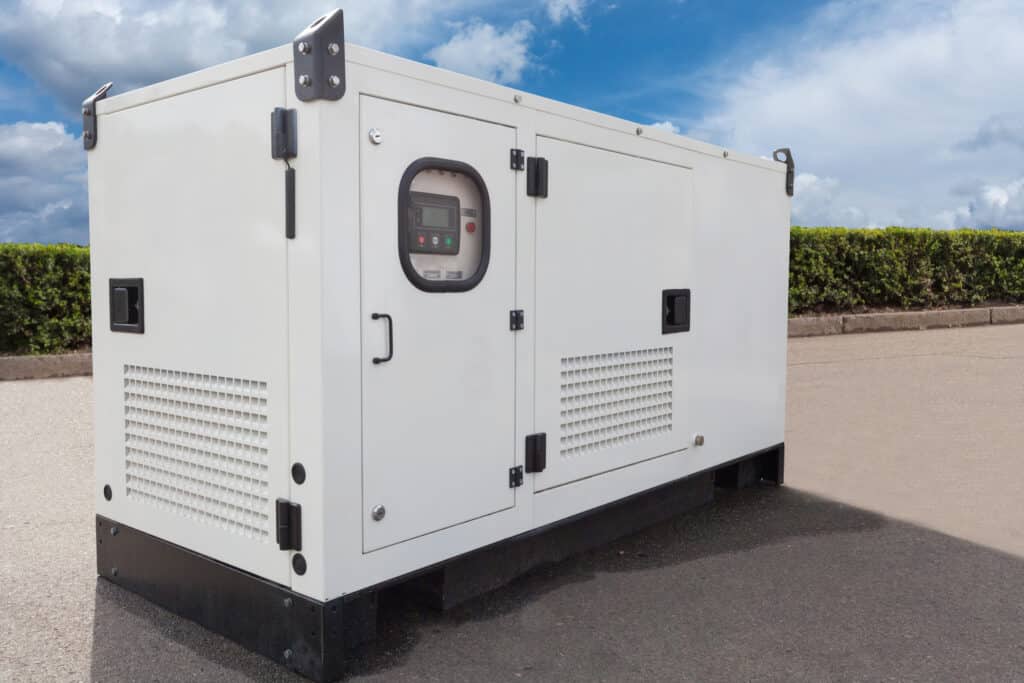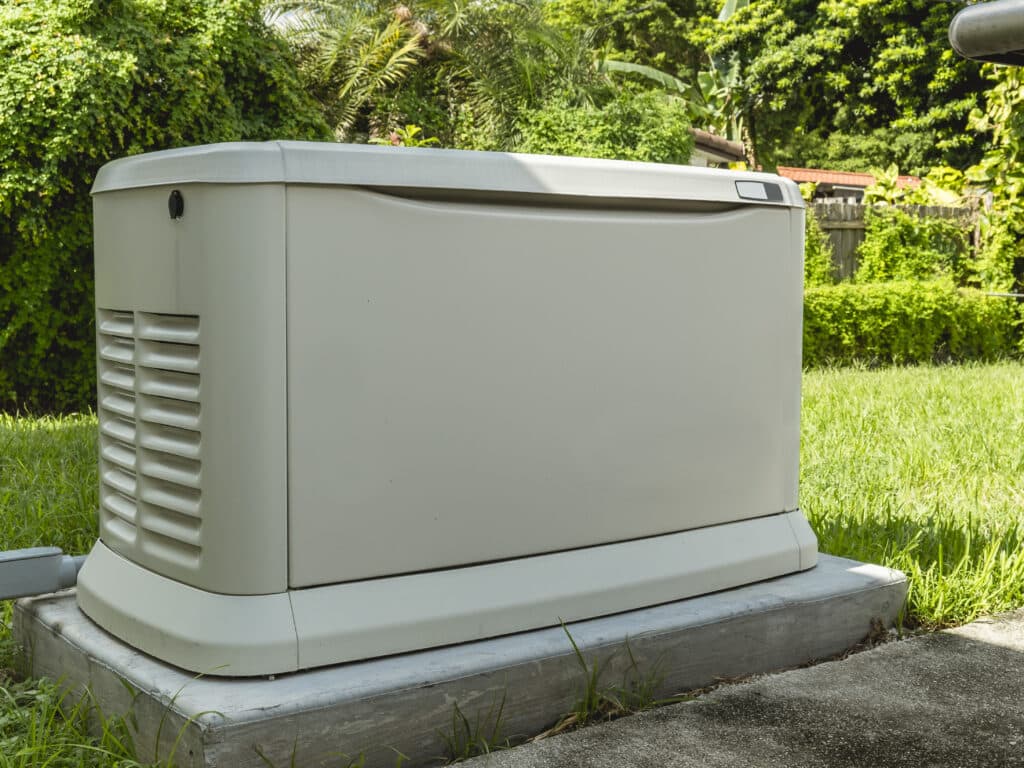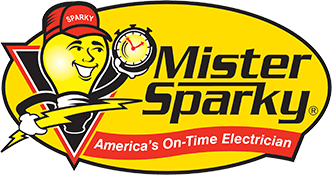
Everything Homeowners Need About Whole House Generators
A whole house generator keeps your power on during outages by switching on automatically within seconds. These generators run on diesel, natural gas, or propane. They make sure your key systems and appliances keep working. Picking the right model and installing it correctly can give you reliable, long-term benefits.
Understanding Whole House Generators
Ever wonder why a Whole House Generator is a must-have for any homeowner in Wilmington, NC?
It keeps your home powered during unexpected outages.
When the power goes out, an automatic switch senses the loss, starts the Whole House Generator, and shifts the electrical load quickly.
Mister Sparky of Wilmington, NC stresses the importance of these generators, especially in areas hit by storms and hurricanes.
They run on diesel, natural gas, or propane, offering a steady power source.
From keeping your fridge running to ensuring heating and cooling systems work, the benefits are many.
Automatic standby generators are key in keeping critical services going.
Building codes often require them for systems like elevators in high-rises, fire protection, and medical life support.
Imagine the peace of mind knowing your home will stay safe no matter what.
In short, Whole House Generators offer both security and convenience, while boosting your home’s value.
By picking the right system and ensuring proper setup, you can protect against power outages and keep your home running smoothly.
How Does a Whole House Generator Work?
Ever wondered how a whole house generator starts working right when the power goes out?
It senses power loss and turns on by itself.
The key part here is the automatic transfer switch.
It detects the outage and lets the generator know to start.
In seconds, your home switches to generator power, keeping the lights on and the fridge cold when you need it most.
The whole house generator usually runs on diesel, natural gas, or propane, making it handy for different homes and fuel types.
It has an engine like a car that turns fuel into mechanical energy.
This energy then becomes electricity through the generator’s alternator.
These generators have systems to keep cool, manage exhaust, and control voltage, ensuring safe and steady power.
So, it’s like having a mini power plant at home, keeping everything up and running smoothly.
Having a whole house generator in Wilmington, NC, especially from trusted providers like Mister Sparky of Wilmington, NC, means you’re safe from sudden power outages.
This automatic reliability gives you peace of mind and keeps you comfy and secure.

Types of Whole House Generators
When it comes to Whole House Generator systems, you have two main choices: Standby Generators and Portable Generators.
Standby Generators
Standby generators are the big guns of backup power.
These units automatically turn on when the power goes out.
An automatic transfer switch senses the power loss, tells the Whole House Generator to start, and switches the electrical load.
Most standby generators use diesel, natural gas, or propane.
They are usually wired directly into your home’s electrical system to provide continuous power.
Installing these generators often requires a pro to meet building codes, especially for safety systems in places like Wilmington, NC.
Portable Generators
Portable generators are flexible and easy to move where you need them.
They are not as strong as standby generators but can still keep your home’s basics running during an outage.
They usually run on gasoline or propane.
You have to set them up manually and they don’t integrate as smoothly into your home’s electrical system.
Portable generators are great for occasional use.
Picking the right type of Whole House Generator depends on your needs, and how often you face power outages in Wilmington, NC.
Choosing the Right Whole House Generator
Need reliable backup power for your home but not sure which whole house generator to choose?
When picking a whole house generator, several key factors should guide your decision.
Start by considering the size of your home and your power needs.
Bigger homes or those with high power demands need stronger generators.
Fuel type is also important—you’ll typically choose between diesel, natural gas, and liquid propane gas.
Each has its own pros and cons, like how available and costly they are in Wilmington, NC.
Also, look at the reliability and reputation of different brands.
There are a variety of models with different capacities and features to consider.
Don’t forget location-specific things.
For example, local building codes in Wilmington, NC, can affect your choice.
Some systems have to follow certain rules, especially for safety systems.
Lastly, talk to experts like Mister Sparky of Wilmington, NC.
They can give you tailored advice and ensure you choose a whole house generator that fits your needs and meets local rules, keeping your home safe and giving you peace of mind.
Installing Whole House Generators
Want to make sure your home in Wilmington, NC always has power?
Here’s a simple guide on how to install a whole house generator.
Before You Start
First, think about where to put the whole house generator.
Pick a spot that meets local rules and has good airflow.
Mister Sparky of Wilmington, NC can help with this.
Also, decide which type of fuel to use – diesel, natural gas, or liquid propane – as this affects setup and procedures.
Installation Steps
- Consult and Assess: Have a pro evaluate your power needs and pick the best spot.
- Get Permits: Obtain permits from local authorities to meet regulations.
- Prep the Foundation: Lay a concrete pad for a stable base.
- Position the Generator: Place the generator on the pad, making sure it’s level and secure.
- Connect the Electricity: Hook up the whole house generator to an automatic transfer switch to detect power loss and start the generator quickly.
- Connect the Fuel: Attach the chosen fuel source to the generator.
- Test and Start-Up: Run tests to ensure the generator works reliably.
By following these steps with expert help, you’ll have a properly installed generator, keeping your home powered during outages.
Cost of Whole House Generators
When you think about getting a whole house generator, consider both the upfront cost and long-term maintenance.
The initial price varies based on size and power.
Installation can depend on the complexity and local rules in Wilmington, NC.
Even though the upfront cost is high, many see it as a good investment for safety and comfort.
Long-term maintenance is also important.
Regular service checks keep the whole house generator running well during power outages.
Investing in a good generator can save money by avoiding emergency services during unexpected outages.
These whole house generators usually use diesel, natural gas, or liquid propane gas, so fuel costs are also part of the ongoing expenses.
Keeping your generator well-maintained by pros like Mister Sparky of Wilmington, NC, ensures it will provide steady power, protecting your home and family.
Remember, a whole house generator is not just a purchase; it’s an investment in your home’s resilience and your family’s peace of mind.
Benefits of Installing a Whole House Generator
Tired of constant power outages disrupting your life?
A whole house generator can be a lifesaver during power cuts.
Let’s look at the benefits of having one.
Reliable Power Supply
With a whole house generator, you won’t be left in the dark.
It gives you a steady power supply, so your lights stay on, your fridge keeps running, and your HVAC system stays on.
When the power goes out, an automatic switch kicks in and starts the generator within seconds.
This smooth changeover makes sure everything works, even during big storms.
Increased Home Value
A whole house generator can raise your home’s value.
Buyers often like homes with backup power systems.
In places like Wilmington, NC, homes with reliable power are even more attractive.
Getting a whole house generator from a trusted company like Mister Sparky of Wilmington, NC not only adds value but also gives peace of mind to future owners.
By getting a whole house generator, you keep your family safe and comfy and also make your home more marketable.
Don’t wait for the next blackout—act now and enjoy these benefits.
Common Issues with Whole House Generators
Worried about your whole house generator failing when you need it most?
With some basic know-how, you can fix common problems easily.
One issue is the whole house generator not starting, often due to battery issues.
Make sure the battery is charged and connections are secure.
Another frequent problem is fuel-related.
Ensure you have enough fuel and that the fuel line is clear of blockages or leaks.
Most standby generators run on diesel, natural gas, or liquid propane gas, so check the fuel type for your system.
Also, keep an eye on the automatic transfer switch.
This key part detects power loss and signals the whole house generator to start.
If it fails, your generator won’t activate.
Regular testing can prevent sudden failures.
For upkeep, regularly check oil levels, change filters, and run your generator once a month.
This keeps engine parts lubricated and ensures everything is in working order.
Professional inspections from trusted services like Mister Sparky of Wilmington, NC can catch issues early, keeping your generator ready at all times.
By staying on top of maintenance and quickly fixing any problems, you’ll keep your home powered and your mind at ease.
Environmental Impact of Whole House Generators
How eco-friendly is your whole house generator?
Knowing the environmental impact is key for homeowners in Wilmington, NC, who want to limit their carbon footprint.
Whole house generators, including those serviced by Mister Sparky of Wilmington, NC, mainly use diesel, natural gas, or liquid propane gas.
Natural gas and liquid propane are greener compared to diesel since they emit fewer greenhouse gases.
Whole house generators need to consider fuel efficiency as another big factor.
Modern generators are built to be very efficient, using less fuel while giving more power.
This not only cuts down on environmental impact but also saves energy over time.
Want to do even more?
Look for eco-friendly options.
Some whole house generators now come with tech to lower emissions.
Consider models with low-emission engines or ones that can work with renewable energy sources.
In Wilmington, NC, Mister Sparky of Wilmington, NC makes sure that all installs meet local environmental rules.
Whether you pick diesel, natural gas, or a greener option, you are making a smart choice for both your home and the planet.
Regulatory and Safety Considerations
What local rules should Wilmington, NC homeowners know when installing a whole house generator?
Following building codes and safety rules is crucial for an easy installation.
Building Codes in Wilmington, NC
In Wilmington, NC, there are specific building codes for the safety and reliability of standby generators.
One key rule is using an automatic transfer switch.
This switch detects power outages and tells the whole house generator to start, transferring the electrical load smoothly.
This ensures minimal disruption and quick power restoration.
Also, automatic standby systems might be required for important safety features like elevators in tall buildings, fire protection, and life-support equipment.
Following these codes keeps your home safe and protects those living in it.
Safety Protocols to Follow
Safety is crucial when installing a whole house generator.
It’s best to hire pros like Mister Sparky of Wilmington, NC, who know local rules and national safety standards.
Key safety steps include:
- Correct Placement: Install the generator outdoors with enough space to avoid carbon monoxide buildup.
- Proper Ventilation: Ensure the whole house generator is well-ventilated to prevent overheating and fire hazards.
- Regular Maintenance: Schedule regular checks to keep the generator in good working order.
By following these safety steps and rules, homeowners can have peace of mind with a reliable and safe power backup system.

Trusted Whole House Generator Brands
When choosing a Whole House Generator, going with a trusted brand is key for reliability and peace of mind.
Among the top names, Generac shines for its strong performance and wide range of choices.
In Wilmington, NC, this brand is popular because of its efficient automatic transfer switch that kicks in smoothly during a power outage.
Kohler is another great pick, known for its quality engineering and reliability in tough weather.
Kohler generators can run on diesel, natural gas, or propane, making them versatile for different needs.
Briggs & Stratton also offers a good mix of dependable performance.
Their generators need little upkeep and last long, which is great for homeowners in Wilmington, NC.
Each brand has its own perks, but all aim to keep your home comfy during power outages.
Getting proper installation and upkeep by pros like Mister Sparky of Wilmington, NC boosts the reliability of these top brands.
A well-set-up Whole House Generator not only guards against power outages but also meets local building rules and safety standards.
In short, picking a quality brand ensures long-term efficiency and adds great value to your home.
FAQs
-
What is a whole house generator?
A whole house generator is a robust backup power system designed to supply electricity to your entire home during a power outage. It operates automatically and can power all essential systems and appliances, ensuring that your home continues to function normally. These generators typically use natural gas, diesel, or propane as fuel sources, providing a reliable energy supply.
-
How quickly does a whole house generator activate during a power outage?
Whole house generators are equipped with an automatic transfer switch that detects a power outage almost instantaneously. Within seconds of the outage, the system automatically starts the generator and transfers the electrical load, ensuring minimal disruption to your home’s power supply.
-
Are whole house generators required by building codes in some cases?
Yes, whole house generators may be required by building codes for critical systems. This includes elevators in high-rise buildings, fire protection systems, standby lighting, and medical equipment.
-
What are the fuel options for whole house generators?
Whole house generators typically operate on diesel, natural gas, or propane, with each fuel type offering distinct advantages. The choice of fuel often depends on availability, cost, and environmental considerations, allowing homeowners to select the most suitable option for their needs.
-
Why is it beneficial to have a whole house generator in Wilmington, NC?
Having a whole house generator in Wilmington, NC ensures you have power during hurricanes or severe weather. These generators provide peace of mind by maintaining power during outages, ensuring that your household remains safe, comfortable, and connected during emergencies.

